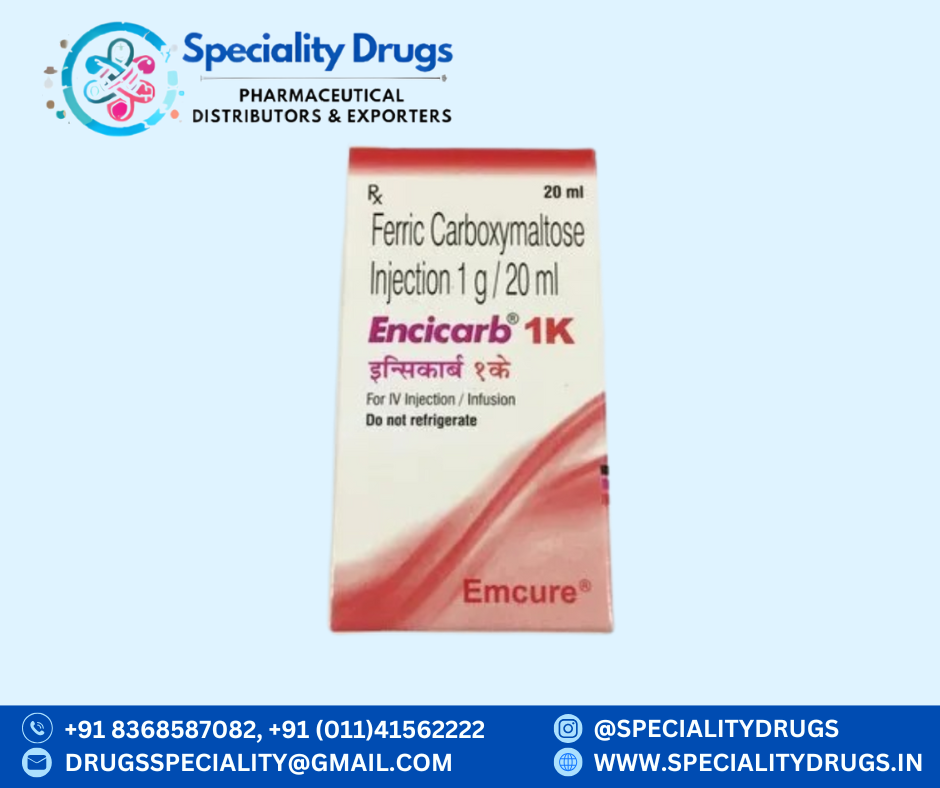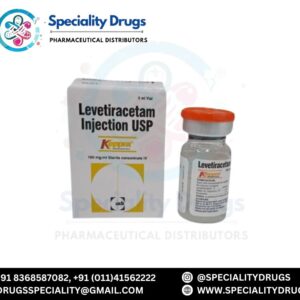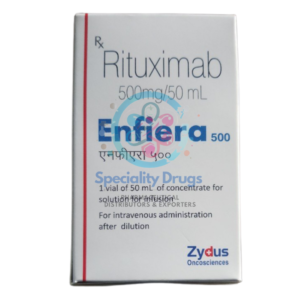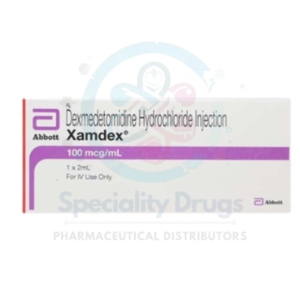What is ENCICARB 1K?
ENCICARB 1K is an intravenous iron injection containing Ferric Carboxymaltose 1000 mg (1 g) as its active ingredient. It is used to treat iron deficiency anemia (IDA) when oral iron supplements are ineffective, not tolerated, or when rapid iron replenishment is required. The injection is administered only under the supervision of a healthcare professional.
Uses of ENCICARB 1K
-
Iron Deficiency Anemia (IDA): For patients with low iron levels due to chronic blood loss, malabsorption, or nutritional deficiency.
-
Chronic Kidney Disease (CKD): Often used in patients on dialysis or with kidney disorders who develop anemia.
-
Postpartum Anemia: Helps replenish iron levels after childbirth.
-
Intolerance to Oral Iron: Suitable for patients who cannot tolerate oral iron tablets or syrups.
Benefits of ENCICARB 1K
-
High-Dose Iron in a Single Sitting: Provides up to 1000 mg of iron in one infusion, reducing the need for multiple doses.
-
Fast Iron Replenishment: Rapidly restores hemoglobin and ferritin levels.
-
Better Tolerability: Lower risk of gastrointestinal side effects compared to oral iron supplements.
-
Convenient Administration: Requires fewer hospital visits, improving patient compliance.
Side Effects of ENCICARB 1K
While generally safe when administered by a medical professional, some patients may experience:
-
Mild headache, dizziness, or nausea
-
Injection-site pain or swelling
-
Temporary changes in taste
-
Low blood pressure (hypotension) or flushing
-
Rare but serious allergic reactions such as difficulty breathing or rash
Seek immediate medical attention if severe allergic reactions or chest tightness occur.
Important Notes
-
Administration: Given as an intravenous (IV) infusion or slow injection by a trained healthcare provider.
-
Precautions: Inform your doctor about any liver disease, infections, or known allergies to iron preparations.
-
Monitoring: Blood tests to check iron levels and hemoglobin are usually done before and after treatment.
1. What is ENCICARB 1K used for?
ENCICARB 1K is used to treat iron deficiency anemia (IDA) in adults when oral iron supplements are ineffective, poorly tolerated, or rapid correction is required.
2. What is the active ingredient in ENCICARB 1K?
It contains Ferric Carboxymaltose, a form of injectable iron.
3. How is ENCICARB 1K administered?
It is given by a healthcare professional only, as an intravenous (IV) infusion or slow IV injection.
4. Can ENCICARB 1K be taken orally at home?
No. ENCICARB 1K is not an oral medication and must be administered in a hospital or clinic setting under medical supervision.
5. How much iron does one dose of ENCICARB 1K provide?
Each vial delivers 1000 mg (1 g) of iron, often enough to replenish iron stores in a single sitting.
6. How quickly does ENCICARB 1K work?
Hemoglobin and iron levels usually improve within 2 to 4 weeks, but results vary by patient.
7. Who needs ENCICARB 1K?
It is commonly used in patients with chronic kidney disease, postpartum anemia, heavy blood loss, malabsorption syndromes, or intolerance to oral iron.
8. Is ENCICARB 1K safe during pregnancy?
Yes, it may be used in the second and third trimester under medical supervision, but safety in the first trimester is limited.
9. Can breastfeeding mothers use ENCICARB 1K?
Yes, it can be prescribed during breastfeeding, but always follow your doctor’s advice.
10. What are the common side effects of ENCICARB 1K?
Mild headache, dizziness, nausea, injection-site pain, or temporary taste changes.
11. What are the serious side effects to watch for?
Low blood pressure, chest tightness, difficulty breathing, or severe allergic reactions (rare).
12. Do I need blood tests after ENCICARB 1K?
Yes. Doctors usually monitor hemoglobin, ferritin, and transferrin saturation to ensure proper iron recovery.
13. How often will I need ENCICARB 1K injections?
Many patients require only one or two infusions, but the schedule depends on iron deficiency severity and doctor’s evaluation.
14. Can ENCICARB 1K interact with other medications?
It generally has low drug interaction risk, but inform your doctor about all ongoing treatments.
15. How should ENCICARB 1K be stored?
Keep vials at room temperature (below 30°C), away from light, moisture, and out of reach of children. Do not freeze.






Reviews
There are no reviews yet.